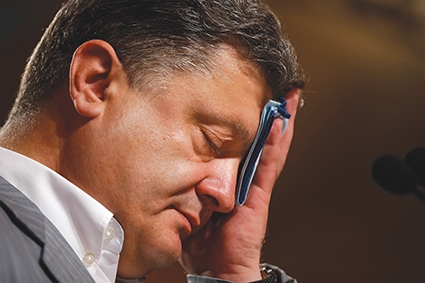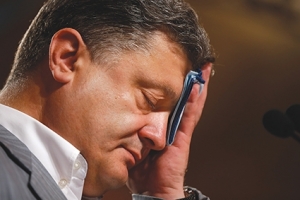Ukraine in Desperate Need of Democracy
OPED
In November 2013 people started gathering on the main square of Kiev, the Maidan in order to show their government that they disapproved of the presidential decision to stop the process of association with the EU. And although the first protests were peaceful, it soon became clear that there was a split between the Eastern Russian-speaking regions of Ukraine, and Western Ukraine. This conflict played a great role in changing international relations and highlighted changes on the international arena.
What we can see now is a country at civil war that doesn’t control its Eastern borders and is suffering from insurgents fighting their army and controlling their major industrial cities. Has anything really improved in the state of the country since 2013?
Those who overthrew Yanukovich believed that by electing president Poroshenko they could open the way for a transparent and accountable government that could lead the country to a democratic future. In 2013, people in Kiev demonstrated to the world that they were a sovereign nation that wouldn’t accept pressure from the outside and which is willing to fight for its ideals. As prominent political scientist Benedict Anderson wrote in his book ‘Imagined Communities,’ “Nations are political communities.” In broader sense Ukrainians became a nation when they demanded political independence and accountability from their government.
It seems that nothing has principally changed in Ukrainian politics since then and dissatisfaction with the government in Ukraine has been growing for some time in light of a devaluing currency, a hike in utilities prices against a drop in the living standards, and allegations of corruption in the highest echelons of the government. And it is not just the ministers who are corrupt, but President Poroshenko himself who breaks promises.
Politicians break their promises all the time, but a strong leader, if he wants to remain popular, should know that certain promises must be kept. For example, he promised to sell his confectionary empire Roshen, but instead transferred the company into a blind trust, and, unlike the Ukrainian economy, which that same year declined by 6.8 percent according to World Bank, his company’s profit increased. Despite pressure from the West he didn’t sack his main ally, the prosecutor Victor Shokin, who was accused by many of stalling corruption investigations. Only after the suspension of direct loans from the International Monetary Fund was Shokin forced to resign. This demonstrated Poroshenko’s inability to lead and make firm decisions about his government and his allies.
People were promised reforms and instead they witnessed constant fighting in parliament, the decline of the Hriyvna and of the economy as a whole; they see that their rulers are as corrupt as those backed by the Kremlin. Poroshenko urged the coalition to decide on a new cabinet after two small parties quit while Yatsenyuk, who survived the February 16 no-confidence vote, wants to lure another party back into the alliance to avoid early elections. With a parliament in constant disarray it is hard to have any political course or to launch needed reforms. And given the lack of confidence in the current government and Yatsenuk as Prime Minister, a cabinet reshuffle seems to be one of the only legitimate ways to turn the ineffective government into a working one.
The other possibility is early elections, which is not in the interest of the parties in the current governing coalition who are likely to do less well than they did in the November 2014 election, given the lack of economic improvement and other clear accomplishments.
Yet without either the Prime Minister or the resignation of the current cabinet, or early elections, it is unclear how further deepening of the political crisis can be avoided. On the other hand during the no-confidence vote, the Opposition block that contains supporters of the former president did not vote to oust the prime minister, but abstained, which means that they are not ready for early elections and that they know that without new faces and a clear political program they won’t be able to win the elections. It could also mean that the Ukrainian oligarchs support Poroshenko.
The situation is similar to the state of Georgia in 2002 when crime and corruption were rampant. People had to pay bribes to accomplish the simplest thing; policemen were not paid a normal salary and so looked for any opportunity to take a bribe. People finally took to the streets to demand respect and accountability. Building a democratic system is very hard and a leader needs certain strength not only to firmly lead the nation through this hard process, but also to step down when needed.
Unfortunately for Ukraine there is no such leader; someone who could bring a new generation of politicians that would have national interest at the top of their agenda. Sadly, for the people of Ukraine, their current leader Mr Poroshenko lacks not only political will and insight, but also charisma and the instinct that could have helped him to solve at least the political crisis.
The future of the country looks gloomy indeed, but this is the way true changes come about; through mistakes and wrong decisions, when one political generation takes over from another. If Ukrainians want to prove to the world that they are indeed a sovereign nation, they must take the democratic way, which is hard, but necessary in order to build a better future.
Mary Kalan












